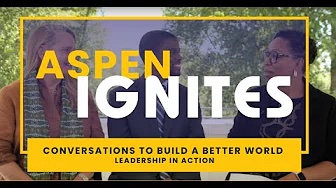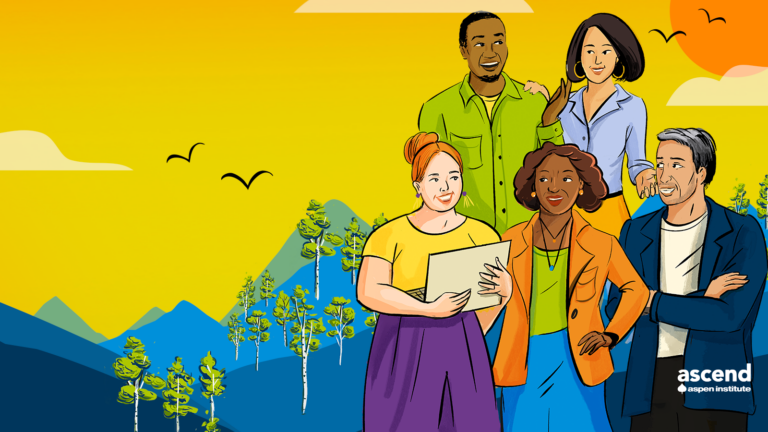Outcomes for Two Generations, Together
On March 2nd I had the pleasure of joining Ascend Network partners from around the country for a conversation about two-generation outcomes.* Even within a single program, identifying which outcomes to measure and how to measure them can be challenging, and further challenges emerge when the conversation includes stakeholders from a range of programs across the two-generation spectrum. Every program and every family is unique, and defining what success looks like can get complicated very quickly! As the two-generation dialogue unfolds, here are some of the questions we find ourselves focused on when we talk about outcomes – questions we'll have to answer as our work continues.
1. What's the point? There are many ways of framing the purpose of a two-generation initiative, from the benefits for children and families individually to the “value add” of coordinating previously separate family support services. An initiative's purpose drives its desired outcomes, but these can vary even within a single agency.
2. What is the ideal program? The Ascend Network includes members whose work is rooted in early childhood education, adult workforce supports, postsecondary education, and whole family approaches. With no “right answer,” effective programming toward any purpose must still begin with proven, high-quality approaches and implementation.
3. Who do we serve? The conversation earlier this month included the importance of balancing enrolling families who are developmentally ready for particular programs or services with not wanting to leave other families behind. Enrolling families in services for which they're a bad fit could lead to negative outcomes that reflect more on enrollment processes than program design. At the same time, creating a menu of options for different groups of families in a community based on their strengths and needs can make it hard to have a single goal or measurement for all families.
4. How do we serve them? All program leaders face the tensions between fidelity to implementing their model, working toward continuous improvement, and individualizing services to meet each family where they are. These tensions can be particularly challenging as we build a research base for exactly what helps which families achieve success.
5. What do we mean by success? For one low-income family, moving from life in a shelter to stable housing over the course of a year may represent huge success; for another family, success may be a parent earning twelve credits toward her bachelor’s degree. While “social and economic mobility” is an aspiration we all hold for families, one of the greatest challenges of creating an outcomes framework that crosses two-generation efforts is defining success in a way that is inclusive of all of those efforts and all of the families they serve.
This measures- and outcomes-focused work is only just getting underway, and many of these questions will require extended debate, wrestling with our terms and definitions and beliefs about what's realistic and what's possible. Yet in order to achieve our own desired outcome, we're committing ourselves to hard conversation and hard work. A year from now – or hopefully sooner! – we will have a better understanding of what success looks like.
*Outcomes are generally defined as behaviors, abilities, or circumstances changed by the end of participation in a program and are used for defining the purpose of any individual two-gen program, demonstrating accountability to funders, and answering evaluation questions about effectiveness and implementation.
Related Posts



